GPPN Conference 2014 Student Report
Although Berlin initially greeted me with grey clouds and cold weather that enveloped the city in a somewhat gloomy atmosphere, coming back to Germany to participate in an international conference as a student of a Japanese university truly felt special and almost ironical. Especially the contrast between the calm and reserved nature of the Japanese and the open, but famously rough and honest character of the people in Berlin gave me an immediate reverse culture shock. After the previous year’s experiences at the GPPN conference in Tokyo in which I assisted in the organizing team, this year’s conference gave me the unique opportunity to compare the management of both events and take a fresh perspective by being a participating student myself.
The location of this year’s conference was well chosen as the year 2014 coincided with the 25 year anniversary of the fall of the Berlin wall. The fact that many walls do indeed remain not only in Germany and Europe, but also between countries and peoples in East Asia, however saw its counterpoint in the warm, open and friendly atmosphere among the participants that were sent out from a diverse range of international universities. Both the organizing team in Berlin that managed the event smoothly and the various participants who were eager to discuss about their respective research and experiences at their home universities made the conference a full success.
Personally, the conference in Berlin gave me the chance to discuss with international students from key public policy schools about contemporary challenges of the international state system and possible policy solutions. Presentations by professors and Hertie students about the state of Germany 25 years after the fall of the Berlin Wall and the current growth issues within the EU were very helpful as they can be related to experiences in East Asia as well (e.g. the situation on the Korean peninsula and growth prospects in Japan and East Asia, respectively).
I contributed to the conference by presenting my research on the relationship between regionalization and national prerogatives in which I analyzed the case of Free Trade Area (FTA) economic policy-making in East Asia. The presentation was roughly 10 minutes long and followed by a short Q&A session. I also followed the other students’ presentations that were often closely related to my own findings and participated in the discussions.
Taking part in the GPPN conference was a very valuable experience for me as it is the only opportunity to discuss and network with students and professors from other public policy schools. The exchange and insights into other schools’ research focuses and practices gave many important impulses to my own work at the University of Tokyo. All in all, it broadened my horizon by offering alternative policy solutions from different regions that may be translated to the East Asian region and encouraged me to further promote bi-regional discussions sharing European and Asian policy experiences. Although I will be a GPPN alumni in 2015, I will surely continue supporting it and hope for its further enlargement.
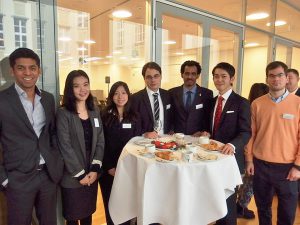 |
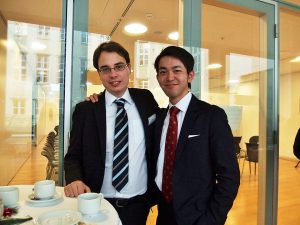 |
[Report by Jan Seidel (MPP/IP 2nd year)]
[Report & Photo] GPPN Student Conference 2014
The annual Global Public Policy Network Conference was hosted by the Hertie School of Governance in Berlin, Germany from 6 – 7 December 2014, with the following theme:
“Managing the New World Disoder – 25 Years after the End of History”
Under this broad theme, the GPPN Student Conference 2014 addressed the following sub-themes:
- How has the role of a nation state evolved over the past 25 years?
- How is the emerging threat of natural resource scarcity a challenge to global governance?
- To what extent do states have a responsibility to protect?
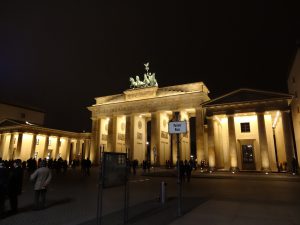 |
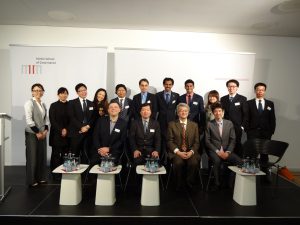 |
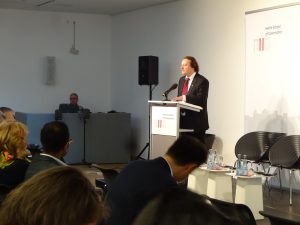 |
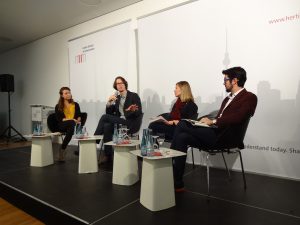 |
13 students from GraSPP joined the student conference and presented their papers on the given topics. All had a great opportunity to exchange their ideas and build the academic network across the world.
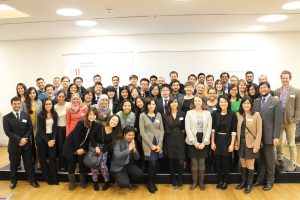 |
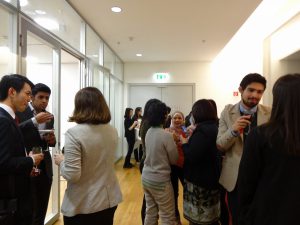 |
*The GPPN is a partnership between the world`s leading universities, School of International and Public Affairs at Columbia University, Lee Kuan Yew School of Public Policy at National University of Singapore, Institute of Public Affairs at London School of Economics and Political Science, Sciences Po in Paris, Hertie School of Governance in Berlin, Fundação Getulio Vargas – EAESP in Brazil and GraSPP, University of Tokyo.
GPPN is global in two ways: the global spread of its members and its subject focus on emerging global trends in public policy.
The mission of GPPN is to address the most pressing public policy challenges of the 21st century and, as a result, to have policy impact, to be influential in public policy education and training, and to be innovative in teaching and research.

